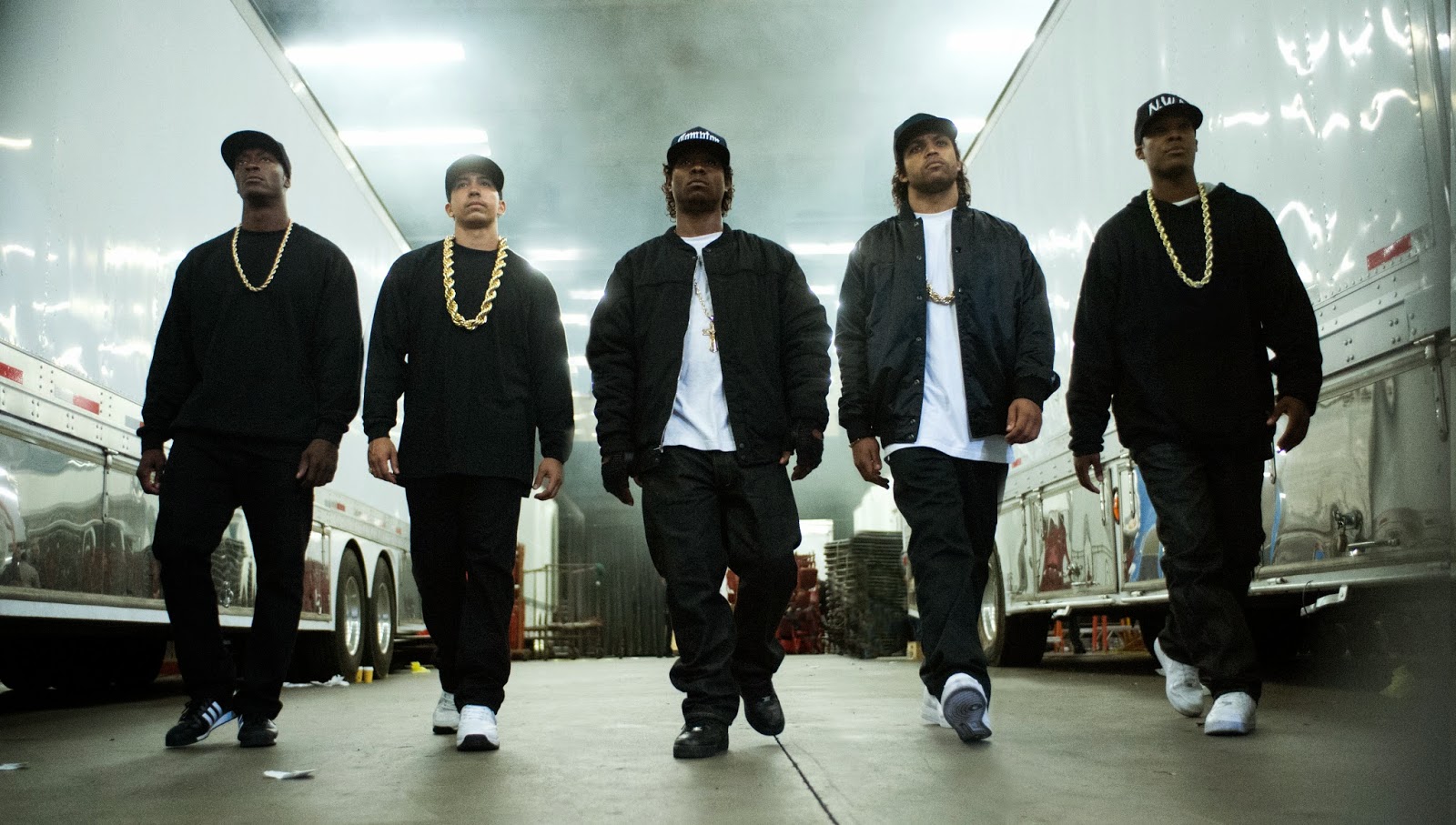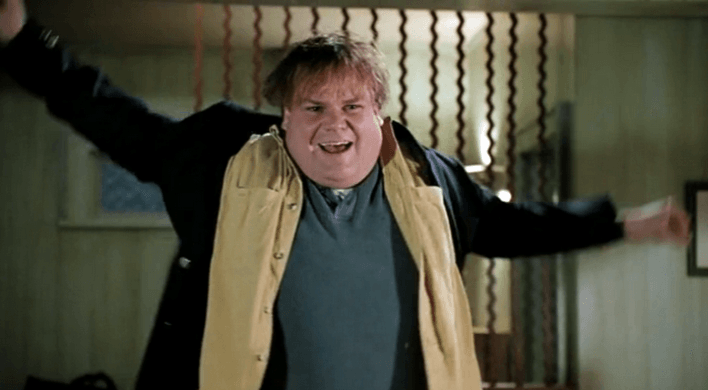Straight Outta Compton
by George Wolf
“Speak a little truth and people lose their minds.”
The members of N.W.A. were hardly the first artists to learn that lesson, but in the late 1980s, they lived it. Straight Outta Compton tells their story with enough honesty, humor and style to make it not only utterly compelling and completely entertaining, but also a damn good history lesson.
N.W.A. became both heroes and villains in 1988, when their album Straight Outta Compton (and specifically their song “Fuck tha Police”) set off a national firestorm. While much of white suburbia clutched their pearls, group members Ice Cube, Dr. Dre, Eazy-E, MC Ren and Dj Yella explained they were just writing what they knew, and expressing just how it felt to live their lives.
Director F. Gary Gray (Friday, The Negotiator, The Italian Job, Be Cool) wastes no time getting your attention, opening with a terrifically tense drug raid sequence followed by Eazy-E (Jason Mitchell) running from the police on Compton, California rooftops.
Gray, aided by screenwriters Jonathan Herman and Andrea Berloff, keeps up the brisk, thoughtful and surprisingly funny pace early on, as we see the group form and take their street knowledge to the recording studio, propelled by Ice Cube’s lyrics, Dr. Dre’s production skills and Eazy-E’s cash flow. Their rise to headline status is endlessly watchable, filled with defiant music and often interspersed with actual news reports from the era.
Mitchell is outstanding as Eazy-E, bringing the swagger required of the group’s early leader, as well as the deeper layers of character that make his downfall as sympathetic as it is expected. The only thing stopping Mitchell from stealing the movie is O’Shea Jackson, Jr,’s breakthrough performance as his real-life father Ice Cube.
The resemblance is uncanny even for a father/son duo but even more than that, Jackson, Jr. embodies the restlessness and rage behind those early rhymes. You can feel his understandable pride in telling this story, and the camera is simply drawn to his charisma. Expect much more from this kid.
The film has many balls in the air, and Gray manages a deft juggling act for most of the nearly 2 1/2 hour running time. It would be understandable, if not outright forgivable, to belabor the point that current headlines only confirm N.W.A. were reporting their present, not seeing the future, but the film gains more power from subtlety.
Melodrama does sneak into the moments when tragedy strikes the group’s inner circle, the pace begins to drag in the third act, and making Dr. Dre’s mother a cliched, forced character seems a desperate attempt to feature at least one positive female. But there’s irony in the missteps.
The film does so many things well, the sudden speed bumps feel more damaging than they end up being.
And, of course, music is the ace in the hole. You hear familiar songs begin to take shape, then acquire a new power as they form in the studio or explode onstage via sweaty, fist-pumping performance pieces. Kudos, too, to whoever decided (I’m guessing it was co-producers Cube and Dre) to pepper the soundtrack with plenty of George Clinton music, giving a much-sampled legend due credit.
This is a musical biopic with some pretty high stakes. It’s at once a universal story of expression, and an intimate American journey, as vital to its own time as it is to ours.
High stakes can bring a big payoff, much like the one you’ll find one in Straight Outta Compton.









